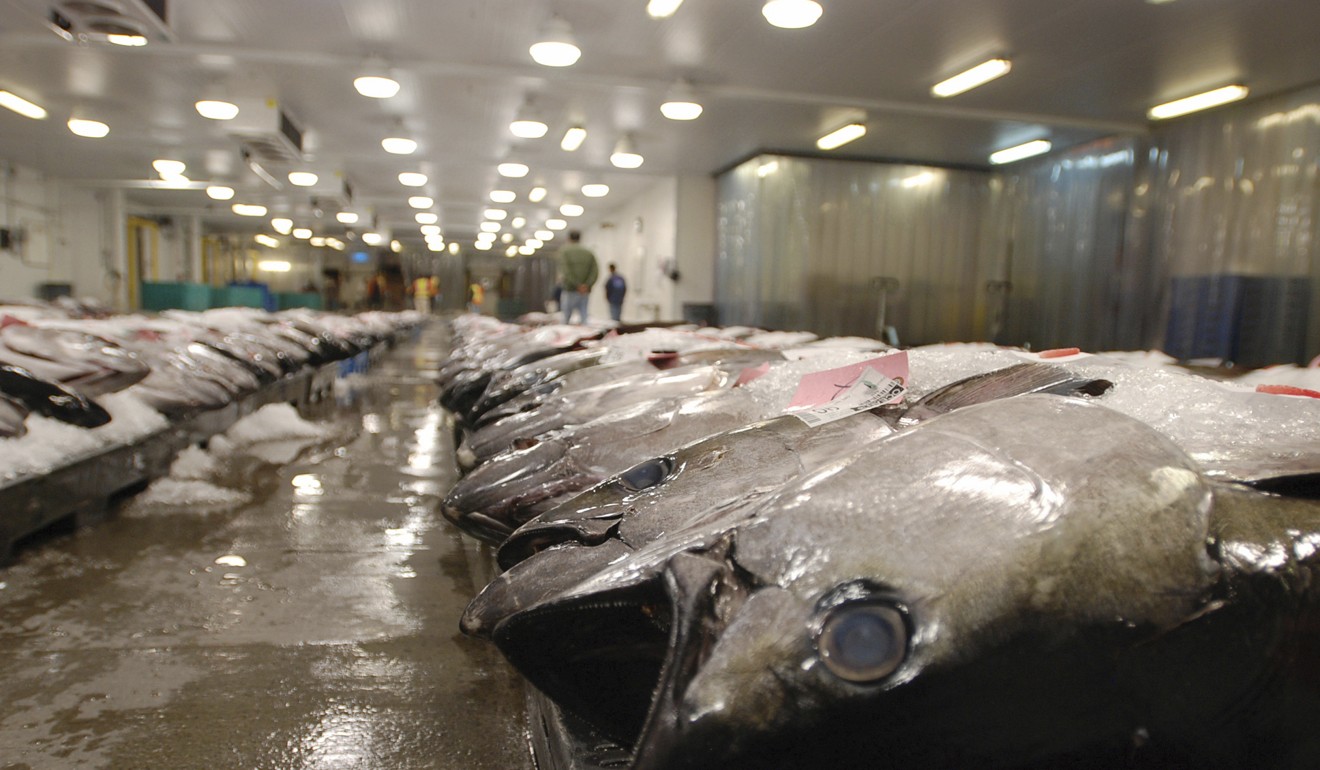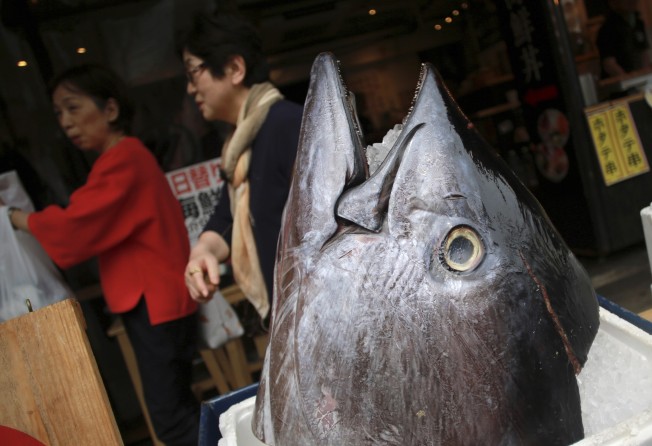
Makers of tinned tuna brands join fight against illegal fishing
Dongwon Industries, Thai Union Group and Bumble Bee Seafoods become part of a global alliance to keep some tuna species off the endangered list

Dongwon Industries Co, Thai Union Group and Bumble Bee Seafoods - companies behind the three biggest canned tuna fish brands - joined a global alliance of organisations trying to stop illegal fishing methods that might be driving some tuna species closer to endangered status.
The Tuna 2020 Traceability Declaration, endorsed by 50 companies and a group of non-governmental organisations, including the American Albacore Fishing Association and the International Seafood Sustainability Foundation (ISSF), was announced at the UN’s Ocean Conference in New York.

One notable absentee: Dalian-based China Tuna Industry Group, which came under scrutiny in 2014 when a draft prospectus for its planned US$100 million initial public offering suggested it took advantage of lax maritime enforcement to exceed catch quotas for bigeye and yellowfin tuna.
Illegal, Unregulated and Unreported fishing “remains a ‘dark side’ of global fisheries and may be as large as 53 per cent of officially reported catch”, according to a recent report from the David & Lucile Packard Foundation, which provides grants to non-profits engaged in environmental protection.
Companies endorsing the non-legally binding declaration pledge to make their tuna products fully traceable to specific vessels and catch dates. They also commit to harvest methods that maintain stocks at sustainable levels.
“Illegal catches that aren’t registered distort the information and in turn threaten the very existence of the fish stocks and the communities that rely on them,” Arni Mathiesen, assistant director-general of the Food & Agricultural Organization’s Fisheries and Aquaculture Department, told reporters at the UN.
“We as administrators and regulators know that we can set all kinds of rules and standards, but the ones out in the field make the next move, so getting an initiative like this, where the stakeholders are pledging to uphold transparency and follow the rules … is a big achievement.”
In 2014, global landings of the seven most commercially important tuna species reached five million tonnes, with an estimated end-product value of over US$40 billion, according to the declaration. The yellowfin and bigeye species, those targeted by China Tuna Industry Group, are subject to overfishing or are classified as overfished, according to the ISSF.
South Korea’s Dongwon Industries owns the StarKist canned tuna brand, and Thailand’s Thai Union owns the Chicken of the Sea brand.
Asian-based tuna producers PT Aneka Tuna Indonesia, Avila Prima Intra Makmur and Shenzhen-based Liancheng Overseas Fishery are part of the pact. Companies outside the region include Marks & Spencer, Germany’s Metro AG and Italy’s Bolton Alimentari S.p.A.